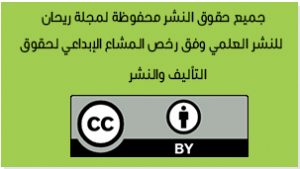This research means studying some issues in the Almighty’s saying: (Indeed, God does not forgive that anything should be associated with Him, but He forgives anything less than that to whom He wills) a comparative analytical study.
It aims to explain the following issues in the verse: Explaining the sayings in the Almighty’s saying: {And He forgives anything other than that to whom He wills}, as well as explaining the sayings regarding the inclusion of the unbelievers and People of the Book in the verse and that it is not specific to polytheism, while mentioning some of the benefits included in the Qur’anic verse.
It concluded several results, the most important of which are:
All scholars agreed that God does not forgive one who dies associating others with Him, and they differed in the Almighty’s saying: {And He forgives anything other than that to whom He wills} based on sayings, and the most likely opinion is what the Sunnis and the community have taken, which is that the disobedient among the believers are in the will of God Almighty, if He wills. He tortured them, and if he wished, he could forgive them, without repentance, out of His kindness and benevolence.
Also, the People of the Book and all infidels are included in the ruling of the verse, which is what the majority of commentators have agreed upon.
What is meant by polytheism in the verse includes all types of monotheism, and that God has given many reasons for forgiveness of sins other than polytheism, including: repentance, good deeds, seeking forgiveness, supplication, the calamities that befall a person in this world, the torment of the grave, the horrors of the Day of Resurrection, and the intercession of the Prophet, may God bless him and grant him peace. Peace be upon him.Key words: Polytheism, Pauses, God’s forgiveness, Expiations of sins, Reasons for forgiveness, Great injustice
Dalal mohammad AHMAD، Assistant Professor of Interpretation and Sciences of the Qur’an, Islamic studies Section, College of Sharia and Law, Al-Jouf University, Sakakah, Kingdom of SAUDI ARABIA.
 مجلة ريحان للنشر العلمي مجلة علمية، محكمة، شهرية، مفتوحة الوصول
مجلة ريحان للنشر العلمي مجلة علمية، محكمة، شهرية، مفتوحة الوصول
